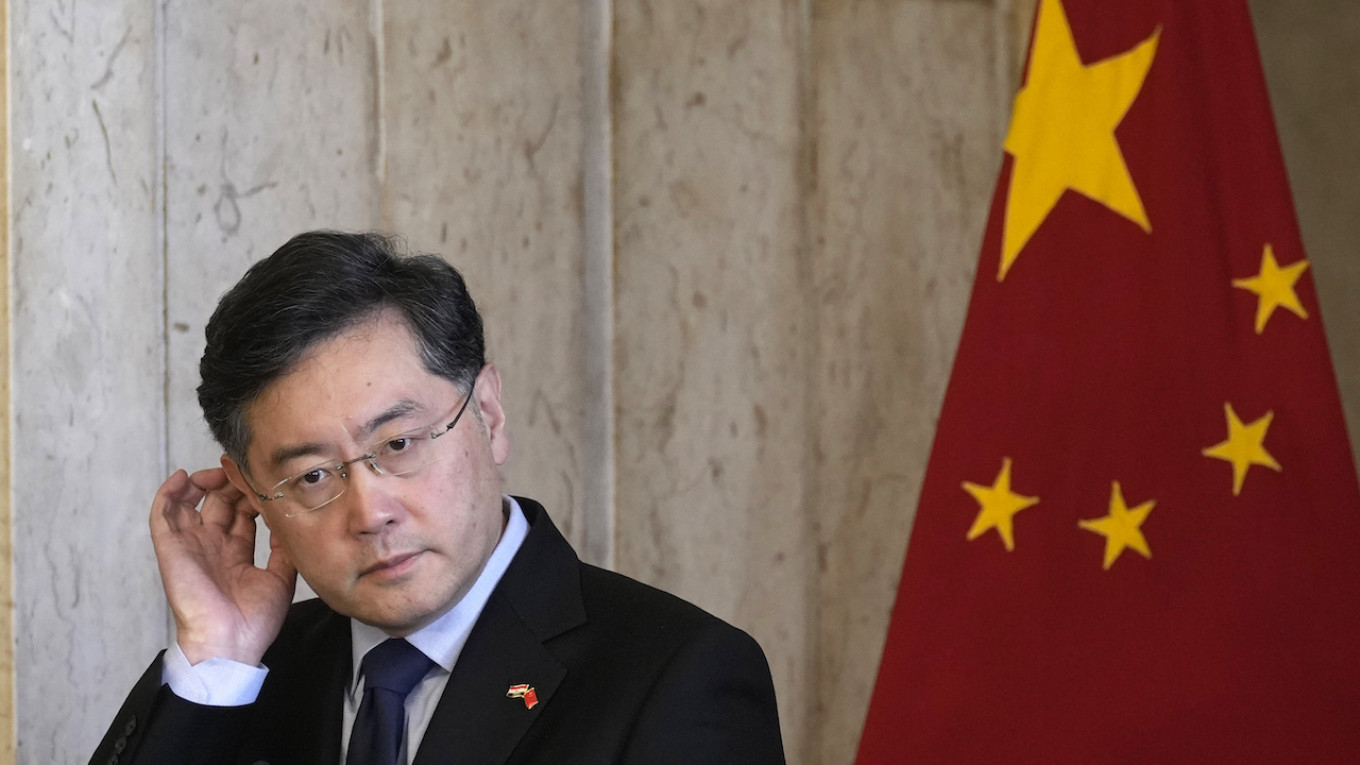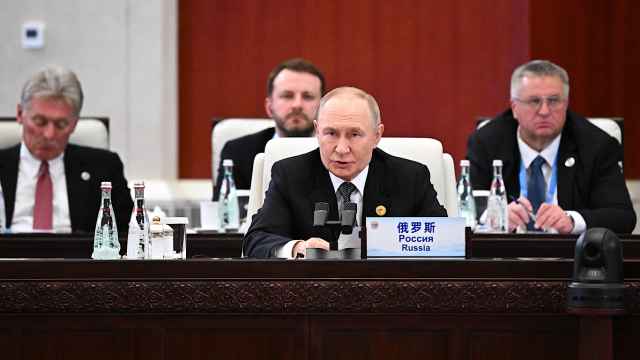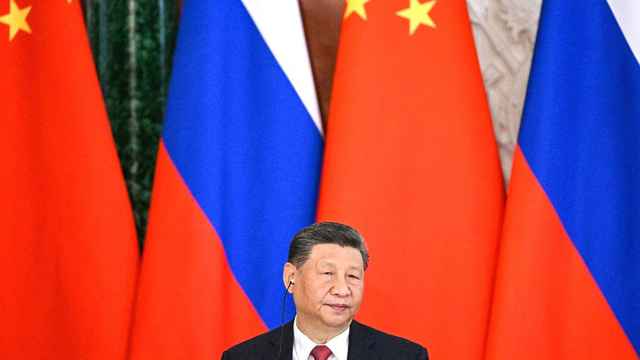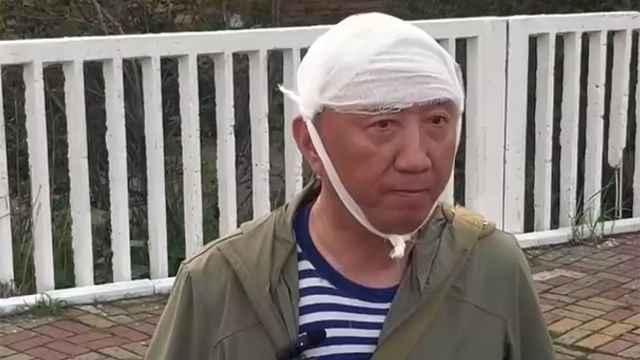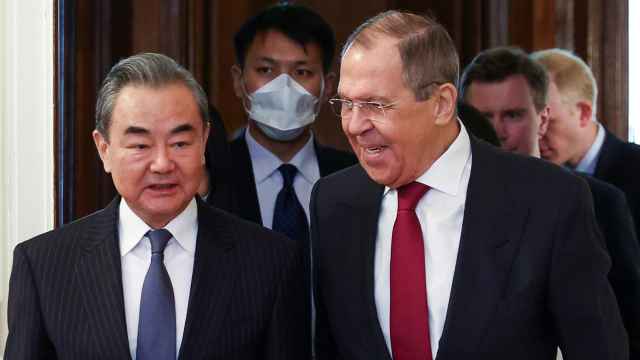China's foreign minister said Tuesday that Beijing is "deeply concerned" about the conflict in Ukraine, which is "intensifying and even getting out of control."
China has sought to position itself as a neutral party on the war in Ukraine, while maintaining close ties with its strategic ally Russia.
Beijing has pledged to publish a proposal aimed at finding a "political solution" to end the war ahead of the first anniversary of Russia's invasion on Feb. 24.
The United States has accused China of mulling arms shipments to Russia, claims Beijing has denied.
"It has been nearly a year since the crisis in Ukraine escalated across the board," Chinese foreign minister Qin Gang said at a conference on global security in Beijing.
"China is deeply concerned that the conflict is intensifying and even getting out of control."
Qin urged the "countries concerned to stop adding fuel to the fire as soon as possible, to stop shifting the blame to China."
Beijing would "offer Chinese wisdom for the political settlement of the Ukrainian crisis, and work with the international community to promote dialogue and consultation, address the concerns of all parties and seek common security," he added.
And regarding the self-ruled island of Taiwan, which China considers its territory and has vowed to seize one day, Qin urged countries to "stop making an uproar by shouting 'Today Ukraine, Tomorrow Taiwan'."
"The pressures and attempts to contain China, coming from the outside, are getting stronger and stronger, they are getting worse and worse, posing a serious threat to China's sovereignty and security," he said.
China's top diplomat Wang Yi told the Munich Security Conference on Saturday that with regard to the Ukraine conflict, Beijing was against attacks on nuclear power plants, opposed the use of biochemical weapons and was willing to work with all parties.
'Red line'
Wang is due in Moscow for talks on his final stop of a European tour that has seen him also visit France, Italy, Hungary and Germany.
The Kremlin said on Monday that Wang may meet with President Vladimir Putin during his visit, according to the official TASS news agency.
The high-level visits follow accusations by U.S. top diplomat Antony Blinken that China could be "considering providing lethal support" to Moscow ranging "from ammunition to the weapons themselves."
The EU's foreign policy chief said he had warned Wang at a meeting over the weekend that any material support for Moscow's war would be a "red line in our relationship."
"He told me that they are not going to do it, that they don't plan to do it. But we will remain vigilant," Josep Borrell told journalists Monday ahead of a meeting of EU foreign ministers in Brussels.
Beijing on Monday rejected the allegations, accusing Washington of "spreading false information."
"It is the United States and not China that is endlessly shipping weapons to the battlefield," China's foreign ministry spokesman Wang Wenbin said.
A Message from The Moscow Times:
Dear readers,
We are facing unprecedented challenges. Russia's Prosecutor General's Office has designated The Moscow Times as an "undesirable" organization, criminalizing our work and putting our staff at risk of prosecution. This follows our earlier unjust labeling as a "foreign agent."
These actions are direct attempts to silence independent journalism in Russia. The authorities claim our work "discredits the decisions of the Russian leadership." We see things differently: we strive to provide accurate, unbiased reporting on Russia.
We, the journalists of The Moscow Times, refuse to be silenced. But to continue our work, we need your help.
Your support, no matter how small, makes a world of difference. If you can, please support us monthly starting from just $2. It's quick to set up, and every contribution makes a significant impact.
By supporting The Moscow Times, you're defending open, independent journalism in the face of repression. Thank you for standing with us.
Remind me later.


